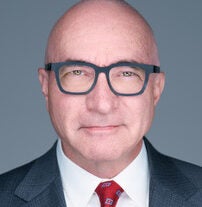An Augusta physician, pain management and addiction specialist says his unique skill set could help the community with challenging issues such as homelessness.
Marshall Bedder is a Canadian born and trained anesthesiologist. Now a naturalized U.S. citizen, he located in Augusta five years ago.
Bedder holds dual roles as chief of pain medicine at the Charlie Norwood VA and as an Augusta University associate professor who directs AU’s addiction medicine fellowship.
He came to Augusta after joining the Navy at age 50 and serving in Afghanistan.
“Now I’m serving my veterans working at the VA,” he said. “I decided to also step up and serve my community, because there’s a lot of needs not being met.”
One of the greatest needs is the triple-threat of addiction, mental illness and homelessness, he said.
The needs exist not just in District 7, where Bedder is running to serve on the Augusta Commission, but across the community, he said.

Tina Slendak, an office manager for an architecture firm, also is pursuing the District 7 seat in the May 21 election. Candidate qualifying begins Monday.
In Augusta, Bedder said it’s clear some are suffering, such as veteran John Lowden. Lowden, who had a history of mental illness, was fatally shot Wednesday in a lane of Washington Road near Berckmans Road.
“We have people that are in bad straits,” Bedder said. “They’re homeless, on medication, have mental issues. This is something I’ve been working with my entire adult career.”
Commissioners have created a task force that came up with recommendations for tackling homelessness, such as hiring a coordinator and building transitional housing and a new shelter. Local law enforcement has its own approaches. But the efforts haven’t had much visible impact.
Homelessness doesn’t stand on its own, Bedder said.
“It’s the intersection of addiction and homelessness and mental health. Those things create an environment where people don’t want to live here, which negatively affects the economic growth of the community,” he said.
Addiction is a chronic disease that should be treated like any other, he said. Its facets range from the acute threat of overdose deaths, to treatment, to addressing any underlying medical and mental health issues, he said.
Bedder said he knows people across Augusta’s academic and medical communities who could help Augusta innovate, collaborate and transform Augusta’s problems into solutions.
“I know people in the community who are doing things,” he said. “I know the academics and the people at the university who have great ideas, and I want to get our heads together to finally do something to really transform the problem that we have into some action.”
If elected, Bedder said a first step would be hosting a “summit” to see who all is doing what in the community, to include leadership, academics and politicians.
The innovations might come in how Augusta manages its shelters, treats jobs or feeds the hungry, he said.
Bedder said when he arrived in Augusta, the VA had no pain treatment service for injured veterans. The service treated 11,000 patients last year, he said.
He also worked with AU’s Department of Psychiatry to obtain a $2.8 million grant now used to train four addiction medicine fellows each year. Participants rotate not just through the hospitals, but out in the community with service providers, he said.
“I want to take that type of activity and make it work for the community,” he said.
And, despite what can be long hours in a medical career, Bedder said he’s already cleared his activity with the VA, which will allow him time to also serve as a commissioner.
“What’s wonderful about the VA is they allow for community service, so I get time off to accomplish my responsibilities on the commission,” he said.
Susan McCord is a staff writer with The Augusta Press. Reach her at susan@theaugustapress.com











